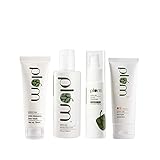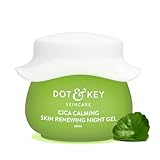
Taking care of acne-prone skin is not just about applying beauty products on the affected area or ways to hide the blemishes. It involves reducing the onset of acne all together by making lifestyle changes and forming a skincare routine that best suits your skin. To understand 'acne' better, let us first understand inflammatory and noninflammatory acne. Clogged pores that appear as blackheads and whiteheads are noninflammatory acne. It can be spotted easily and is the mildest type of acne. On the other hand, inflammatory acne is a more robust form of acne. The red bumps or pus containing bumps are known as inflammatory acne.
Also Read: Ascorbic Acid: Here's Your Guide To The Beauty Benefits Of Ascorbic Acid

The Common Causes Of Acne
The possible causes of acne include:
- Genetic factors
- Immunity reactions
- Intestinal infections
- The way the body processes proteins which normally protect the skin from infection
Acne can be caused by a combination of hormones, bodily oils and bacteria. As a result of dead skin, body oils and bacteria clogging the pores, sebum cannot escape from the pores causing acne. Overproduction of oil can be caused due to puberty, menstrual cycle, pregnancy or even menopause. Though acne is common in teenagers, it can be experienced at any age.
It is a common belief that acne is common in oily skin type. Though oil is a greatest contributor to acne, dry skin types can also experience acne. As a result of poor lifestyle and various environmental hazards, acne is very common these days.
Easy Ways To Prevent Acne
1. Wash your face regularly, especially after workouts
2. Avoid harsh exfoliation and be gentle with your skin
3. Do not pop pimples
4. Follow a gentle skincare routine, approved by your dermatologist
5. Stay hydrated
A Step-Wise Skincare Routine For Acne-Prone Skin
1. Cleansing
A regular cleansing routine is a must, if you wish to have healthy skin. While choosing the cleanser for acne-prone skin, just be careful with the ingredient list. It is best to cleanse the skin once or twice daily. For people with mild breakouts, it is advisable to use salicyclic acid-based cleansers. Be very careful with your choice of cleansers as people with dry skin would not benefit from the cleansers which would wash out all the oils from the face.
2. Exfoliating
Cleansing cleans the skin of dead skin cells and dirt but to scrub away the dirt particles, it is important to exfoliate the skin. Acne-prone skin types are advised to use gentle exfoliators which would not cause irritation to the skin.
3. Toning
This is not a mandatory step, but toners can help balance the skin and ingredients like the tree tea oil and sulfur can be used to reduce acne symptoms.
4. Moisturising
Though moisturising would seem to work against the acne skin regime, it is important to add moisture to the skin as it gets dried out with the acne treatments. Moisturisers rich in ceramides and niacinamides can be used on acne-prone skin as they help reduce inflammations.
5. Sunblocking
Usually the anti acne products make the skin more sensitive towards the sunrays. It becomes mandatory to wear sunscreen daily to protect the skin from harmful Uv radiation. Use a sunscreen which best suits your skin. You can choose niacinamides and hyaluronic acid in sunscreens to keep the skin calm and hydrated.
Though the list is exhaustive, the above-mentioned routine will start giving you a healthier skin. We recommend visiting your dermatologist before starting any skincare regime. Also do not forget to conduct a patch test before using new products.
Also Read: Dandruff Flakes: Here's How To Get Rid Of Dandruff Flakes
Swirlster Picks For Acne-Prone Skin

Minimalist 2% Salicylic Acid Serum For Acne, Blackheads
(18K+ ratings & reviews)₹549Buy NowTrack Latest News Live on NDTV.com and get news updates from India and around the world





